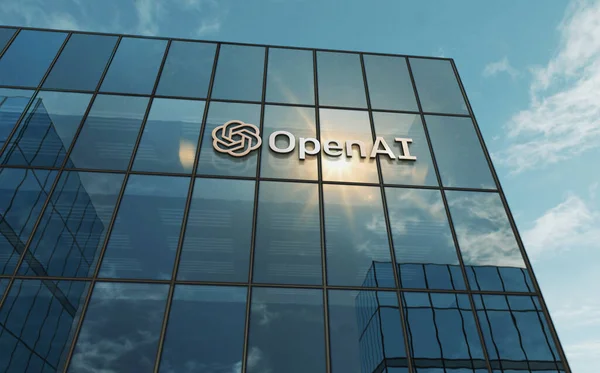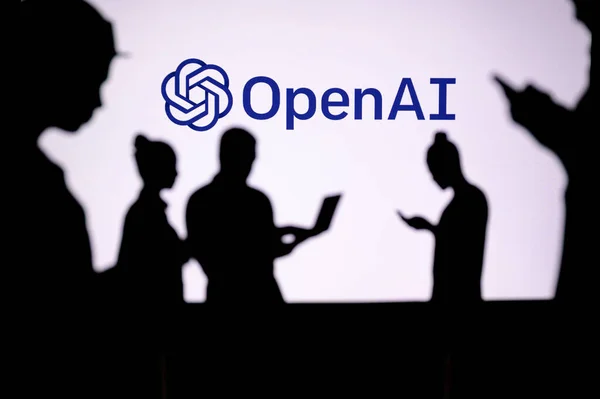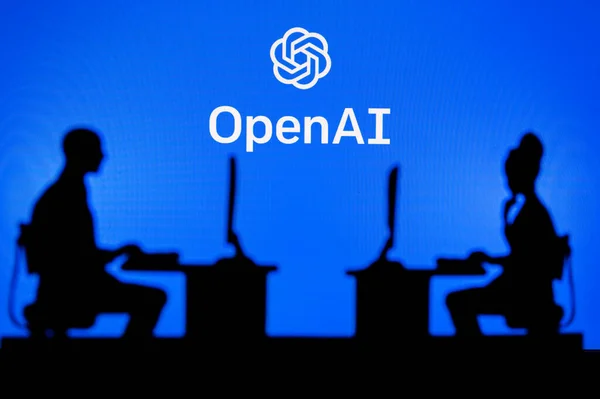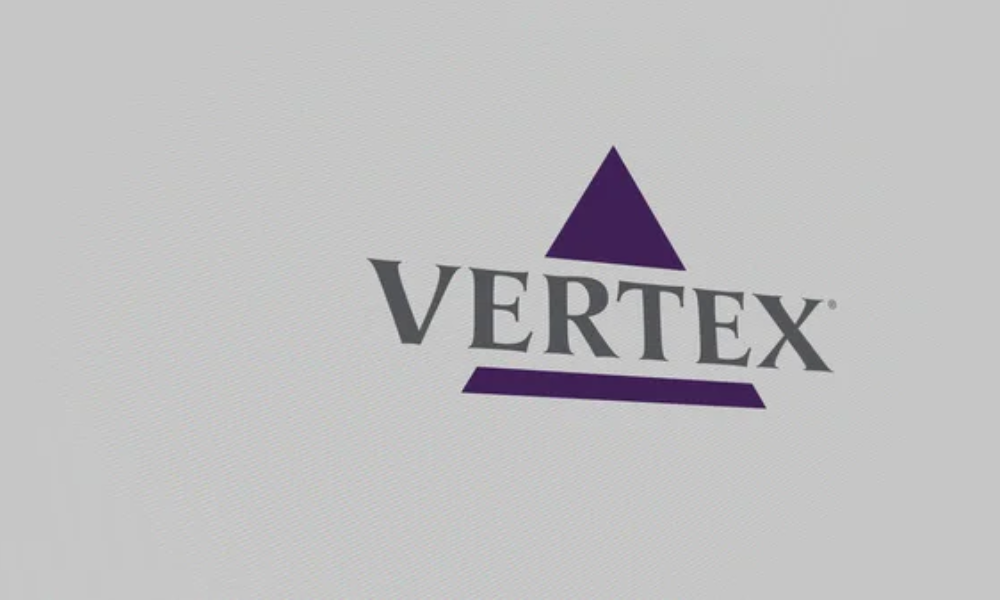OpenAI is a non-profit research company dedicated to friendly artificial intelligence. It currently stands at a crossroads. OpenAI was founded in 2015 by Elon Musk and others.
An ambitious goal has been raised about the benefits of artificial intelligence. Its use has garnered significant attention for its advancements in natural language processing and other AI domains.
The use of AI keeps rising. As a result, competition intensifies and this has raised certain questions. Many people wonder if OpenAI will ever go public.
Read More: 2 Tech Behemoths Battle it Out with AI at The Forefront
Factors Favoring an OpenAI IPO
The decision for OpenAI to go public is complex. However, several compelling factors suggest that an IPO could significantly benefit the organization. There are potential advantages of this development.

Funding Needs
OpenAI operates on a non-profit model and relies on grants from various entities. This approach has promoted transparency. Yet, there are concerns raised about long-term financial sustainability.
An IPO would provide access to capital from public investors. This enables OpenAI to carry out some functions:
- Expand research scope: Invest in ambitious research projects that require substantial resources. This might result in breakthroughs in areas like artificial general intelligence.
- Attract and retain top talent: This will offer competitive salaries and equity-based compensation. It is also possible to work on groundbreaking projects.
- Build advanced computing infrastructure: Invest in cutting-edge hardware and software. Powerful AI accelerators and vast datasets should come to mind. These are necessary for training and deploying complex AI models.
Increased Visibility and Influence
Public markets offer a platform for increased visibility and influence. OpenAI can showcase its technological prowess and commitment to ethical AI development. This enables it to attract new partners.
Also Read: Microsoft Surpasses Q2 Earnings Expectations, Riding High on AI and Cloud Success
Better Transparency and Accountability
Public companies encounter stricter financial reporting. OpenAI currently publishes transparency reports. Yet, an IPO could further enhance public trust and accountability. This shows adherence to its stated principles.
A successful IPO should showcase sustainable growth and profitability. This could attract more partners and promote a broader ecosystem. OpenAI could thrive in the public sphere.
Unlocking Employee Incentives
Publicly traded companies offer stock options and other equity-based incentives. This helps to attract top talent. This could be a huge factor for OpenAI in a competitive landscape.
Challenges Hindering an OpenAI IPO
The potential benefits of an OpenAI IPO cannot be denied. However, the decision is never straightforward.
There are several significant challenges that could hinder its success. As a result, it is important to have careful consideration before embarking on this path.
Mission Misalignment
OpenAI’s core identity is due to its non-profit structure. This feature prioritizes ethical AI development over shareholder profit. Going public could introduce pressure to prioritize short-term gains. This might compromise its core mission and values.
The need for profitability might lead to research directions that cater to market demands rather than ethical considerations. This would adulterate OpenAI’s commitment to responsible AI.
Market Volatility
The tech industry is prone to market fluctuations. It should be noted that AI is a particularly nascent field. An IPO could expose OpenAI to unpredictable market forces.
This step would make it difficult to plan for the future. As a result, its research focus can be potentially impacted.
A sudden market downturn could significantly impact investments in long-term research projects. This hinders progress and jeopardizes OpenAI’s ability to fulfill its mission.
Regulation Uncertainty
The AI landscape lacks a clear and comprehensive regulatory framework. This poses a significant challenge for publicly traded companies.
For this reason, a company might wish to go public. Then, OpenAI could face legal uncertainties in its research due to evolving regulations.
Navigating this complex and changing legal landscape would require substantial resources. This might stop OpenAI’s ability to innovate freely.
Loss of Control
Public ownership reduces control over the company’s decision-making. OpenAI’s leadership advocates for responsible AI development. Yet, an IPO could give external shareholders undue influence.
Pressure from short-term investors can be filled with profit-driven agendas. This could lead to decisions that conflict with OpenAI’s long-term vision.
Alternative Paths for OpenAI
OpenAI’s decision does not have to be binary. There are alternative paths that offer various advantages. They might even potentially mitigate some of the challenges associated with an IPO. The AI research company could consider the following ideas:
Continued Non-Profit Model: OpenAI could remain a non-profit. It should seek sustainable funding through grants and innovative revenue models.
Such models can align with its mission. This path offers greater autonomy. However, it limits access to capital and public influence.
Hybrid Model: OpenAI could explore hybrid structures. It combines non-profit and for-profit arms. This promotes both mission-driven research and market-driven commercialization.
This approach offers financial flexibility. Yet, it requires careful design to avoid conflicting interests.
Acquisition: OpenAI could be acquired by a larger technology company. It gains access to resources and expertise.
However, its control over its direction and mission has been reduced. This path is unlikely because of OpenAI’s commitment to independence.
The Future of AI Industry Leadership
OpenAI’s decision will have broader implications for the future of AI leadership. Publicly traded companies drive AI innovation. However, their focus on shareholder profits raises concerns about potential misuse.

It is possible for OpenAI to remain non-profit. Then, it can serve as a counterpoint that demonstrates responsible AI development.
It can also shape the industry through its values. However, its long-term viability might be hampered by financial limitations.
Final Thoughts
The decision of whether or not to go public is a critical one for OpenAI. There are far-reaching implications for its future. It is important to carefully consider the potential benefits.
Comparing these against the significant challenges requires careful consideration. It is also imperative to uphold its core values of responsible AI development.
The path chosen must ensure OpenAI can continue to be a force for good in the world. It will shape the future of AI with ethics at its heart.
Read Next: Will Amazon Remain a Titan in The Stock Market?
DISCLAIMER
You should read and understand this disclaimer in its entirety before joining or viewing the website or email/blog list of SmallCapStocks.com (the “Publisher”). The information (collectively the “Advertisement”) disseminated by email, text or other method by the Publisher including this publication is a paid commercial advertisement and should not be relied upon for making an investment decision or any other purpose. The Publisher is engaged in the business of marketing and advertising the securities of publicly traded companies in exchange for compensation. The track record, gains, upside, and/or losses mentioned in the Advertisement, if any, should not be considered as true or accurate or be the basis for an investment. The Publisher does not verify the accuracy or completeness of any information included in the Advertisement. While the Publisher does not charge for the SMS service, standard carrier message and data rates may apply. To unsubscribe from receiving promotional text messages to your phone sent via an autodialer, using your phone reply to the sender’s phone number with the word STOP or HELP for help.
The Advertisement is not a solicitation or recommendation to buy securities of the advertised company. An offer to buy or sell securities can be made only by a disclosure document that complies with applicable securities laws and only in the states or other jurisdictions in which the security is eligible for sale. The Advertisement is not a disclosure document. The Advertisement is only a favorable snapshot of unverified information about the advertised company. An investor considering purchasing the securities, should always do so only with the assistance of his legal, tax and investment advisors. Investors should review with his or her investment advisor, tax advisor or attorney, if and to the extent available, any information concerning a potential investment at the web sites of the U.S. Securities and Exchange Commission (the "SEC") at www.sec.gov; the Financial Industry Regulatory Authority (the "FINRA") at www.FINRA.org, and relevant State Securities Administrator website and the OTC Markets website at www.otcmarkets.com. The Publisher cautions investors to read the SEC advisory to investors concerning Internet Stock Fraud at www.sec.gov/consumer/cyberfr.htm, as well as related information published by the FINRA on how to invest carefully. Investors are responsible for verifying all information in the Advertisement. As an advertiser, we do not verify any information we publish. The Advertisement should not be considered true or complete.
The Publisher does not offer investment advice or analysis, and the Publisher further urges you to consult your own independent tax, business, financial and investment advisors concerning any investment you make in securities particularly those quoted on the OTC Markets. Investing in securities is highly speculative and carries an extremely high degree of risk. You could lose your entire investment if you invest in any company mentioned in the Advertisement. You acknowledge that we are not an investment advisory service, a broker-dealer or an investment adviser and we are not qualified to act as such. You acknowledge that you will consult with your own independent, tax, financial and/or legal advisers regarding any decisions as to any company mentioned here. We have not determined if the Advertisement is accurate, correct or truthful. The Advertisement is compiled from publicly available information, which include, but are not limited to, no cost online research, magazines, newspapers, reports filed with the SEC or information furnished by way of press releases. Because all information relied upon by us in preparing an advertisement about an issuer comes from a public source, it is not reliable, and you should not assume it is accurate or complete.
By your subscription to our profiles, the viewing of this profile and/or use of our website, you have agreed and acknowledged the terms of our full disclaimer and privacy policy which can be viewed at the following link: www.SmallCapStocks.com/Disclaimer and www.SmallCapStocks.com/Privacy-Policy
By accepting the Advertisement, you agree and acknowledge that any hyperlinks to the website of (1) a client company, (2) the party issuing or preparing the information for the company, or (3) other information contained in the Advertisement is provided only for your reference and convenience. The advertiser is not responsible for the accuracy or reliability of these external sites, nor is it responsible for the content, opinions, products or other materials on external sites or information sources. If you use, act upon or make decisions in reliance on information contained in any disseminated report/release or any hyperlink, you do so at your own risk and agree to hold us, our officers, directors, shareholders, affiliates and agents harmless. You acknowledge that you are not relying on the Publisher, and we are not liable for, any actions taken by you based on any information contained in any disseminated email or hyperlink.
Kevin is an experienced business development strategist and content writer specializing in finance and stock market topics. He has a proven track record of driving sales and enhancing communications for small businesses by blending academic knowledge with practical experience to create engaging and accurate content.












